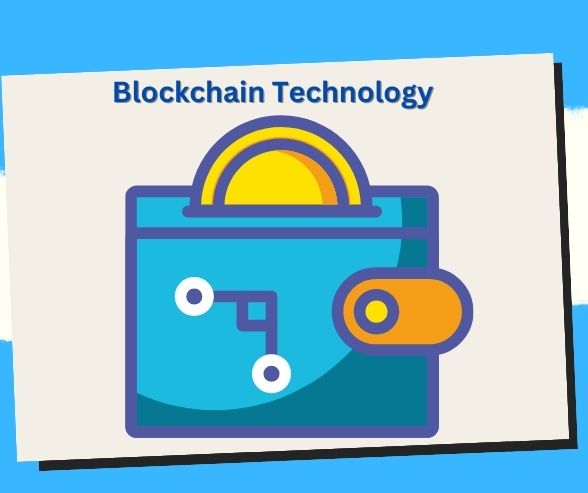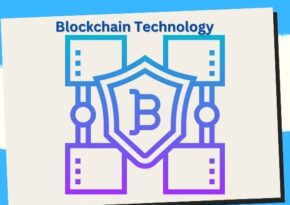
Transforming the Internet: Blockchain and Data Integration Explained
Discover how blockchain and data advancements are paving the way for a more secure and efficient internet experience.
Blockchain and Data for a Better Internet: Revolutionizing Security, Privacy, and Accessibility 🌐🔗
In today’s digital age, concerns over data security, privacy breaches, and centralized information control are increasingly prevalent. Blockchain technology has emerged as a transformative solution, offering decentralized, transparent, and secure ways to manage and transfer data. This comprehensive guide explores the fundamentals of blockchain, its impact on the internet, and practical applications that promise to shape a more secure and efficient digital future.
Understanding Blockchain Technology 🧱🔒
1. What is Blockchain? 📚
Blockchain is a distributed ledger technology that allows data to be stored and verified across a network of computers. Each block of data is linked to the previous one, forming a chain of blocks. This decentralized approach ensures transparency, immutability, and security.
Tips:
- Decentralization: Data is not stored in a central location, reducing the risk of single-point failures.
- Transparency: Transactions are visible to all participants, enhancing trust and accountability.
- Security: Cryptography ensures that data stored on the blockchain cannot be altered or tampered with easily.
2. Key Features of Blockchain Technology 🌟
Blockchain technology offers several key features that make it suitable for various applications beyond cryptocurrencies:
- Immutability: Once data is recorded on the blockchain, it cannot be changed retroactively.
- Security: Transactions are cryptographically secured, making it difficult for unauthorized parties to alter data.
- Traceability: Every transaction is traceable and auditable, promoting accountability.
- Efficiency: Streamlined processes and reduced intermediaries lower transaction costs and time.
3. Types of Blockchain Networks 🌐
Blockchain networks can be categorized into public, private, and consortium (semi-private) networks, each serving different purposes based on access control and governance models.
Tips:
- Public Blockchains: Open to anyone and transparent (e.g., Bitcoin, Ethereum).
- Private Blockchains: Controlled by a single organization for internal use (e.g., enterprise applications).
- Consortium Blockchains: Shared among a group of organizations with controlled access (e.g., supply chain management).
Applications of Blockchain for a Better Internet 🚀💻
1. Enhanced Data Security and Privacy 🔐
Blockchain enhances data security by encrypting transactions and storing them across a decentralized network. This makes it resistant to hacking and unauthorized access, ensuring user privacy and confidentiality.
Tips:
- Secure Data Storage: Blockchain is used to store sensitive data like personal information and financial records.
- Identity Verification: Implement blockchain-based identity solutions to verify identities securely.
- Smart Contracts: Automate contract execution while ensuring transparency and trust among parties.
2. Decentralized Internet Infrastructure 🌐
Blockchain can decentralize internet infrastructure, reducing dependency on centralized servers controlled by a few entities. This improves network resilience, uptime, and accessibility, especially in regions with limited internet infrastructure.
Tips:
- Content Distribution: Use blockchain to distribute content and ensure faster, more reliable access.
- Domain Name Systems (DNS): Implement blockchain-based DNS to prevent domain hijacking and censorship.
- Peer-to-Peer Networking: Enable direct communication and file sharing between users without intermediaries.
3. Supply Chain Transparency and Traceability 📦🔍
Blockchain enables transparent and traceable supply chains by recording every transaction, from raw material sourcing to product delivery. This enhances accountability, reduces fraud, and ensures ethical practices.
Tips:
- Track and Trace: Use blockchain to track the journey of products and verify authenticity.
- Certifications and Compliance: Ensure products meet regulatory standards through blockchain-based certifications.
- Real-time Updates: Provide stakeholders with real-time updates on supply chain activities and inventory levels.
How to Implement Blockchain for a Better Internet 🛠️🔗
1. Assessing Use Cases and Requirements 📝
Identify specific challenges in your industry or organization that blockchain technology can address. Assess feasibility, scalability, and regulatory considerations before implementation.
Tips:
- Industry-specific Solutions: Tailor blockchain applications to meet industry-specific needs (e.g., healthcare, finance, logistics).
- Proof of Concept: Start with a small-scale pilot to test functionality and gather feedback before full deployment.
- Compliance: Ensure compliance with relevant data protection and regulatory requirements.
2. Choosing the Right Blockchain Platform 🖥️
Select a blockchain platform that aligns with your project requirements, such as Ethereum, Hyperledger, or Corda. Consider factors like scalability, consensus mechanism, and development tools.
Tips:
- Scalability: Choose a platform capable of handling your expected transaction volume and growth.
- Consensus Mechanism: Determine the appropriate consensus algorithm (e.g., Proof of Work, Proof of Stake) based on network requirements.
- Developer Support: Access comprehensive documentation, tutorials, and community support for seamless integration.
3. Integrating Blockchain with Existing Systems 🔄
Integrate blockchain with existing IT infrastructure and applications to streamline operations and maximize efficiency. Ensure interoperability and data compatibility across systems.
Tips:
- API Integration: Use blockchain APIs to facilitate seamless communication between blockchain and legacy systems.
- Data Migration: Safely migrate existing data to blockchain-based platforms while maintaining data integrity.
- Training and Support: Provide staff training on blockchain technology and its implementation within your organization.
Benefits of Blockchain and Data for a Better Internet 🌟
- Enhanced Security 🔒: Blockchain’s decentralized nature and cryptographic security measures make data less vulnerable to hacks and unauthorized access.
- Transparency and Accountability 🕵️♂️: Blockchain enables transparent transactions and data tracking, fostering accountability across digital platforms.
- Improved Data Integrity 🛡️: Data stored on a blockchain is immutable and tamper-proof, ensuring its authenticity and reliability.
- Decentralization 🌍: Reduces reliance on centralized authorities, promoting a more democratic and resilient internet infrastructure.
- Faster Transactions ⚡: Blockchain facilitates faster and more efficient transactions, eliminating intermediaries and reducing transaction costs.
- Smart Contracts 📜: Automates and enforces contract terms without third-party involvement, streamlining processes and reducing disputes.
- Data Privacy 🛡️: Users have more control over their personal data, with enhanced privacy features embedded in blockchain solutions.
- Supply Chain Transparency 🚚: Enables end-to-end traceability of goods and services, ensuring ethical practices and reducing fraud in supply chains.
- Innovation in Digital Identity 🆔: Facilitates secure and portable digital identities, improving accessibility to services while protecting user data.
- Economic Inclusion 💸: Provides access to financial services for underserved populations through blockchain-based solutions like decentralized finance (DeFi).
Case Studies 📚
- Bitcoin ₿
- Challenge: Creating a decentralized digital currency.
- Solution: Using blockchain to record and verify transactions without a central authority.
- Result: Introduced a new asset class and sparked a global interest in cryptocurrencies.
- Ethereum 🌐
- Challenge: Building a platform for decentralized applications (dApps).
- Solution: Developed smart contracts to automate and secure transactions on a blockchain.
- Result: Expanded blockchain’s use cases beyond currency to include dApps, tokens, and decentralized finance.
- IBM Food Trust 🍎
- Challenge: Ensuring food traceability and safety in supply chains.
- Solution: Implemented blockchain to track the journey of food products from farm to table.
- Result: Improved transparency, reduced food waste, and enhanced consumer trust in food safety.
- VeChain 🔄
- Challenge: Ensuring authenticity and traceability in luxury goods and supply chains.
- Solution: Utilized blockchain to verify product authenticity and track supply chain logistics.
- Result: Enhanced trust among consumers and reduced counterfeit products in the market.
- UNICEF and WFP’s Blockchain Projects 🌍
- Challenge: Improving transparency and efficiency in humanitarian aid distribution.
- Solution: Leveraged blockchain to track aid transactions and ensure funds reach intended recipients.
- Result: Increased accountability, reduced administrative costs, and improved aid delivery in crisis zones.
- Filecoin 📁
- Challenge: Creating a decentralized storage network.
- Solution: Developed a blockchain-based platform for storing and retrieving data securely.
- Result: Expanded storage options and reduced reliance on centralized cloud storage providers.
- Healthcare Blockchain Applications 🏥
- Challenge: Securing patient data and improving interoperability in healthcare systems.
- Solution: Implemented blockchain to maintain patient records securely and enable data sharing across healthcare providers.
- Result: Enhanced data security, streamlined healthcare operations, and improved patient outcomes.
- Aragon 🏛️
- Challenge: Decentralizing organizational governance.
- Solution: Created a platform for creating and managing decentralized autonomous organizations (DAOs) using blockchain.
- Result: Empowered communities to govern themselves transparently and efficiently.
- Ripple 💧
- Challenge: Facilitating cross-border payments efficiently.
- Solution: Utilized blockchain technology to enable faster and cheaper international transactions.
- Result: Improved liquidity, reduced transaction fees, and enhanced financial inclusion globally.
- Luxembourg Blockchain Initiative 🇱🇺
- Challenge: Enhancing regulatory compliance and transparency in financial services.
- Solution: Implemented blockchain for regulatory reporting and transaction transparency.
- Result: Strengthened financial oversight, reduced compliance costs, and attracted blockchain investments.
Key Takeaways 📋
- Understanding Blockchain Basics 🔗: Familiarize yourself with blockchain’s decentralized ledger and cryptographic principles.
- Exploring Use Cases 🌐: Discover diverse applications of blockchain beyond cryptocurrencies, such as supply chain management and healthcare.
- Security and Privacy Considerations 🛡️: Prioritize data security and privacy when adopting blockchain solutions.
- Impact on Industries 🏢: Assess how blockchain can transform industries like finance, healthcare, logistics, and more.
- Regulatory Landscape 📜: Stay informed about evolving regulations and compliance requirements in blockchain technology.
- Collaboration and Ecosystems 🤝: Engage with blockchain communities and explore partnerships to leverage collective expertise.
- Integration with Emerging Technologies 🌟: Explore synergies between blockchain and technologies like AI, IoT, and big data analytics.
- Education and Upskilling 🎓: Invest in learning opportunities to deepen your understanding of blockchain technology and its applications.
- Ethical and Social Implications 🌍: Consider the ethical implications of blockchain, including inclusivity, transparency, and sustainability.
- Future Trends 🔮: Anticipate future developments in blockchain, such as scalability solutions, interoperability, and regulatory advancements.
FAQs with Answers ❓
- What is blockchain technology?
- Answer: Blockchain is a decentralized digital ledger that records transactions across multiple computers in a secure and transparent manner.
- How does blockchain ensure data security?
- Answer: Blockchain uses cryptographic techniques and decentralization to secure data, making it resistant to tampering and unauthorized access.
- What are smart contracts, and how do they work?
- Answer: Smart contracts are self-executing contracts with predefined rules written into code. They automatically enforce and execute contract terms when conditions are met.
- Can blockchain be hacked?
- Answer: Blockchain is highly secure due to its decentralized and cryptographic nature. Hacking individual nodes is extremely difficult, making blockchain resistant to traditional hacking methods.
- What are the environmental impacts of blockchain technology?
- Answer: Proof-of-work (PoW) blockchains like Bitcoin can consume significant energy. Efforts are underway to develop more energy-efficient consensus mechanisms like Proof-of-Stake (PoS).
- How can blockchain benefit supply chain management?
- Answer: Blockchain improves supply chain transparency, traceability, and efficiency by recording every transaction and movement of goods on a decentralized ledger.
- Is blockchain suitable for small businesses?
- Answer: Yes, blockchain offers benefits like enhanced security, reduced costs, and improved transparency, making it accessible and beneficial for small businesses.
- What are the regulatory challenges facing blockchain adoption?
- Answer: Regulations around blockchain vary globally, focusing on issues like data privacy, financial transactions, and consumer protection. Compliance with these regulations is crucial for widespread adoption.
- How does blockchain impact data privacy?
- Answer: Blockchain enhances data privacy by enabling users to control their data through cryptographic keys and permission access, reducing reliance on centralized entities.
- What are the limitations of blockchain technology?
- Answer: Challenges include scalability issues, energy consumption concerns (for PoW blockchains), regulatory uncertainties, and interoperability between different blockchain networks.
Conclusion 🚀
Blockchain technology holds immense potential to revolutionize the internet by enhancing security, privacy, and accessibility for users worldwide. Organizations can build more resilient, transparent, and efficient digital ecosystems by leveraging blockchain’s decentralized architecture and cryptographic security. Embrace the possibilities of blockchain for a better internet and pave the way for a more inclusive and trustworthy digital future. Here’s to harnessing the power of blockchain to create positive change! 🌐💡
This guide equips you with essential knowledge and practical tips to explore blockchain’s transformative potential in improving the internet. Whether you’re a tech enthusiast, entrepreneur, or industry professional, integrating blockchain solutions can pave the way for innovation and sustainable growth. Embrace the future of decentralized technology and embark on a journey toward a better, more secure internet. Happy exploring! 🛠️✨
Key Phrases
- “Blockchain technology for internet enhancement”
- “Data security innovations with blockchain”
- “Blockchain’s impact on digital trust”
- “Decentralized internet solutions”
- “Blockchain integration in online operations”
- “Data integrity and blockchain”
- “Internet evolution with blockchain”
- “Blockchain-driven data management”
- “Trustworthy internet ecosystems”
- “Future of internet standards”
Best Hashtags
- #BlockchainForInternet
- #DataSecurity
- #InternetTrust
- #DecentralizedWeb
- #BlockchainInnovation
- #DigitalTransformation
- #InternetPrivacy
- #BlockchainTechnology
- #DataIntegrity
- #OnlineSecurity
Save/Share this story with QR CODE
Disclaimer
This article is for informational purposes only and does not constitute endorsement of any specific technologies or methodologies and financial advice or endorsement of any specific products or services.
📩 Need to get in touch?
📩 Feel free to Contact NextGenDay.com for comments, suggestions, reviews, or anything else.
We appreciate your reading. 😊Simple Ways To Say Thanks & Support Us:
1.) ❤️GIVE A TIP. Send a small donation thru Paypal😊❤️
Your DONATION will be used to fund and maintain NEXTGENDAY.com
Subscribers in the Philippines can make donations to mobile number 0917 906 3081, thru GCash.
3.) 🛒 BUY or SIGN UP to our AFFILIATE PARTNERS.
4.) 👍 Give this news article a THUMBS UP, and Leave a Comment (at Least Five Words).
AFFILIATE PARTNERS

World Class Nutritional Supplements - Buy Highest Quality Products, Purest Most Healthy Ingredients, Direct to your Door! Up to 90% OFF.
Join LiveGood Today - A company created to satisfy the world's most demanding leaders and entrepreneurs, with the best compensation plan today.



 Business Technology, Finance Technology & Information Technology
Business Technology, Finance Technology & Information Technology





